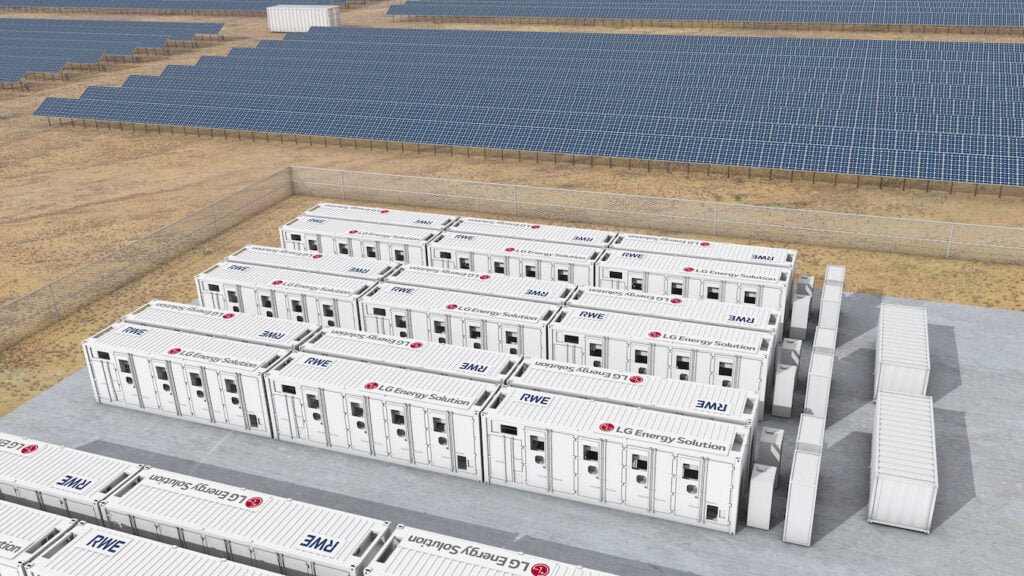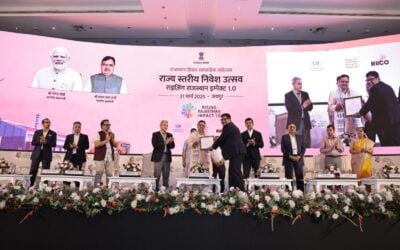
A six-year lithium off-take contract signed by LG Energy Solution and supplier Sigma Lithium “signals the importance of securing lithium supply and the importance of ESG,” an industry supply chain expert has said.
Canada-headquartered Sigma Lithium has been producing battery-grade lithium concentrate at a demonstration plant in Brazil since 2018 and is focused on being able to provide large volumes of “green and sustainable” high purity lithium to the global market.
Enjoy 12 months of exclusive analysis
- Regular insight and analysis of the industry’s biggest developments
- In-depth interviews with the industry’s leading figures
- Annual digital subscription to the PV Tech Power journal
- Discounts on Solar Media’s portfolio of events, in-person and virtual
It has claimed its production processes and use of hydroelectric power are among factors that will enable it to achieve net zero emissions status by 2024.
Last week, Sigma announced the signing of the binding off-take term sheet with LG Energy Solution (LGES) for the supply of lithium concentrate through to the end of 2027, beginning commercial delivery next year. The South Korean battery system and electric mobility company will purchase an initial 60,000 tonnes from 2022 – 2023, with the amount increasing to 100,000 tonnes per year from 2024 to 2027.
There is also an option in place for LG Energy Solution to purchase an additional 50,000 tonnes each year in that final three year period and an additional 15,000 tonnes in 2022 and 2023.
While of course, batteries for electric vehicles (EVs) will be a major focus, the deal is significant for LG Energy Solution’s energy storage systems business too, Shawn Shaw, director of energy storage at quality assurance, supply chain management and engineering services group Clean Energy Associates, told Energy-Storage.news.
“Securing a long-term supply of lithium for any manufacturer is key in this market, given supply chain disruptions and growth in energy storage deployment and projections for future contracting,” Shaw said.
“Clean Energy Associates’ market intelligence group tracks capacity plans of energy storage manufacturers; we note that this the deal is significant – both in magnitude and in terms of consolidating lithium supply chain for a major energy storage supply vendor.”
The deal covers an amount of battery-grade lithium concentrate that could supply the majority of LGES’ lithium needs over the next few years, he said. The agreement also establishes a “transparent and consolidated supply chain,” which gives investors in the market a “strong signal” on the company’s sourcing, planning and ESG considerations.
“With all the recent uncertainties around international supply chains, shipping, and the COVID-19 pandemic, this type of supply chain certainty may be a strong benefit to LGES,” Shaw said.
“Transparency in materials sourcing is one of the major barriers in demonstrating compliance with sustainable sourcing requirements. Given the recent activity in the solar PV market around supply chain traceability, asset owners and investors are increasingly pushing for more transparency in the sourcing of materials related to new energy storage projects. Lithium is only one of hundreds of materials required to build a typical containerised energy storage system today but, along with cobalt, it is often raised as an issue for energy storage traceability.”
The deal gives Sigma Lithium the long-term revenue certainty of partnering with a major lithium-ion battery player. The company’s co-CEO, Ana Cabral-Gardner said that Sigma has a strategy of creating direct commercial relationships with the world’s largest Tier 1 battery producers to provide stability to its future cash flows.
“Sigma Lithium’s production process is 100% powered by clean energy, does not utilise hazardous chemicals, recirculates 100% of the water and dry stacks 100% of its tailings. We believe that sustainable, scalable and reliable production of high-quality lithium will be essential to meeting demand from sustainable energy leaders like LGES,” Cabral-Gardner said.

In a brief interview, CEA’s Shawn Shaw talked us through some of the other major talking points around the deal:
How big a deal could this supply agreement be across the wider energy storage supply chain?
Lithium supply is one of the main concerns for the growth of the energy storage industry over the next few years. Clean Energy Associates’ current market projections suggest that lithium supply may fall below combined demand from the electric vehicle and energy storage segments as early as the next two years, even accounting for new lithium production capacity coming online.
We generally expect that, over the next five years, China-based lithium iron phosphate (LFP) manufacturers will gain market share against those, like LGES, that focus on nickel manganese cobalt (NMC) chemistries.
By securing a reliable lithium supply, LGES’ relatively low exposure to lithium supply risks and cost increases (and we have seen lithium prices impacting battery pack pricing in recent months) may make them a more attractive option for risk averse buyers, potentially shortstopping some of the expected loss in market share.
Is this type of deal common in the ESS market?
This type of agreement is not unique but it is notable.
Many of the China-based manufacturers have put considerable emphasis into securing supply chains for key minerals. While many of these key minerals are not sourced within China, China has made significant inroads into regions, such as Australia and the Democratic Republic of Congo, to secure favourable supply chains for China-based mid-market and downstream manufacturing facilities.
Not all of these arrangements are of the same magnitude as the LGES and Sigma agreement and may not include the same ESG focus, which makes this arrangement similar, but perhaps more notable, than most other agreements in place across the supply chain.
What does it tell us anything in terms of overall market supply chain dynamics – both from the lithium side and the battery side?
This move, by one of the major ESS equipment suppliers, signals the importance of securing lithium supply and the importance of ESG.
Energy storage has drawn fire in some circles for the potential impacts of lithium extraction and the growing concern by investment funds with ESG mandates is clearly being taken seriously.
The energy storage industry, in short order, must learn from the PV industry and address supply chain needs by bringing transparency and an ESG-friendly product to the market.
It is important, however, to bear in mind the wide variety of materials included in a typical energy storage system. Lithium is a notable cell component, but it advisable to take a wider view in traceability analyses so that potential buyers can secure materials from sources that are aligned with their ESG goals.






